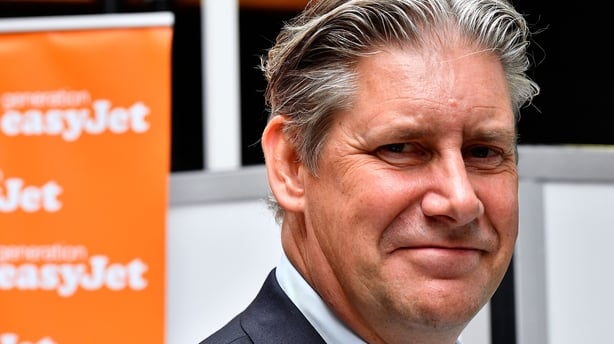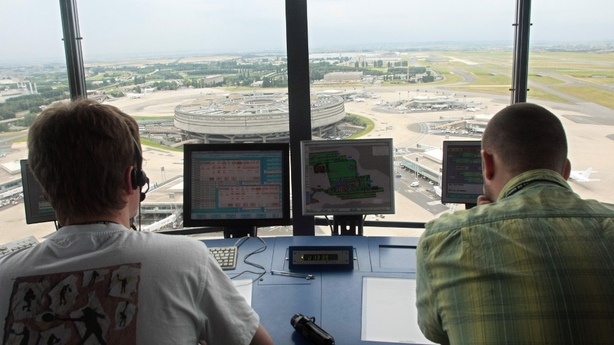UK airline EasyJet has today forecast a smaller first-half loss and strong summer bookings, boosting its shares despite a writedown of about £40m due to the conflict in the Middle East.
The low-cost airline reported a first-quarter headline loss before tax of £126m, compared with a loss of £133m a year ago. Its shares jumped 5% in early trade to their highest since March 2023.
European airlines benefited from robust demand in 2023 as travel continued to bounce back from the pandemic, but worries over high jet fuel prices, geopolitical instability in the Middle East and economic uncertainties caused some concern.
"We see positive booking momentum for summer 2024 with travel remaining a priority for consumers," chief executive Johan Lundgren said in a statement.
EasyJet said it was able to mitigate the impact of the war in Gaza thanks to capacity growth in areas where demand was rising, and that bookings had recovered since late November.
However, it said it would maintain its pause on flights to Israel and Jordan and had seen a slowdown in demand to Egypt as a result of the war, leading to the writedown, but added the latter was also expected to rebound.
Even before today's rise, easyJet's shares were outperforming European rivals as it benefits from holidaymakers' voracious appetite for travel following Covid-19 lockdowns.
Since January last year, its stock has soared 57%, outpacing budget rival Ryanair and national airlines.
In November, it reinstated its dividend, among the first major European airlines to do so since the pandemic.
Its shares trade at 8 times forecast earnings over the next 12 months, among the highest in the European sector. The so-called price-earnings ratio is a widely used gauge of the relative value of stocks.
However, it is still unclear how supply chain constraints could impact ticket prices, Lundgren added on a press call, as capacity will likely be tighter than expected this year.
Sixteen aircraft deliveries are set to go ahead as planned, the company said, adding it will use CFM as its engine supplier for 314 engines on its recent order of 157 Airbus jets.
EasyJet CEO urges reform after French near-miss tied to controller shortage
Meanwhile, EasyJet has urged French authorities to resolve air traffic control problems after a report into a near-collision involving one of its jets cited staff shortages and absenteeism.
"This clearly has been one of the weakest links in the whole chain of aviation; we know it has been an issue particularly in France," CEO Johan Lundgren said when asked about shortages.
"They need to sort out the problem because there are millions of people struggling with this thing. The key thing is prioritising safety and they need to have a solid and resilient operation," he stated.

France's DGAC aviation authority had no immediate comment.
French investigators recently concluded a probe into the near-miss at Bordeaux airport on December 31, 2022, when a controller apparently forgot that a private plane was on the runway as an A320 jetliner was fast approaching with 179 passengers on board.
Crew were ordered to abort the landing after the pilot of the small DR400 - taking a leisure flight with his nine-year-old son - raised the alarm on hearing over the radio that the easyJet plane was coming in to land from London Gatwick.
Only the reactions of the unidentified leisure pilot avoided a more serious accident, France's BEA agency said.
It cited a shortage of staff in the tower, exacerbated by the practice of combining tasks usually carried out by separate controllers into one. Only three were on duty instead of six.
The report was issued days before a Japan Airlines Airbus A350 collided with a coast guard plane after landing at Tokyo's Haneda on January 2, killing five people on the smaller plane.
Japanese investigators are expected to focus in part on communications between the tower and coast guard pilots. In both events, the airliner crew reported not seeing the smaller plane.
The BEA report sheds light on distractions controllers regularly face everywhere, as well as language problems.
But it has also sparked a debate in France about absenteeism after exposing a wider system under which controllers had been setting lower hours by keeping their own "parallel" roster.
Management knew of the shadow rosters but could not access them and appeared to have turned a blind eye to keep the peace in France's strike-prone control centres, the BEA said.
It also cited a practice nicknamed the "car park U-turn" in which some control staff clocked in for work by entering the car park - only to head straight out again.

In two separate days of checks by France's DSNA air traffic control authority last year, 13% of controllers worked half their shift or less and 12% did not turn up at all.
In testimony to the BEA, management confirmed the existence of a parallel schedule and said relations with unions were "difficult" on anything that involved work tracking.
France's SNCTA union could not immediately be reached.
France's transport minister has given air traffic control (ATC) authorities two months to put work practices in order.
France has frequent controller strikes, drawing complaints from foreign airlines like EasyJet and Ryanair, which are prevented from crossing through its airspace to serve busy markets like Spain.
Ryanair Group CEO Michael O'Leary this week reiterated criticism of government policies allowing strikes to hamper "overflights".
"When they are not on strike, (French controllers) provide a very good service," he told Reuters. "The issue is not with French ATC but the government not protecting overflights".

